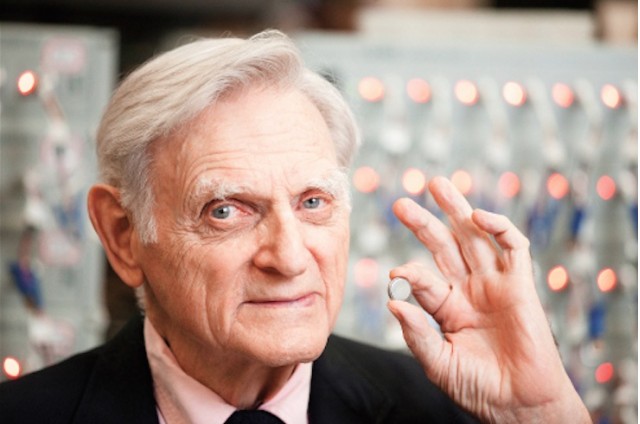
With devices becoming increasingly mobile and lithium-ion currently dominating the electric car field, consumer electronics and other product categories, battery life has evolved into an integral aspect of our day-to-day lives.
Researchers, however, think the technology powering lithium-ion can be improved.
One of these researchers, 94-year-old professor from the University of Texas Austin’s Cockrell school of engineering, John Goodenough, who also happens to be the founder of lithium-ion tech, says that he and his team has developed a better alternative to current lithium-ion technology.
In a paper published in the journal of Energy & Environmental Science, Goodenough says that the new battery his team has developed can charge faster than current lithium-ion designs and is also noncombustible, which is good news for Samsung and the South Korean giant’s ill-fated Note 7.
The battery features a solid-state design, replacing the flammable liquid electrolyte currently utilized in lithium-ion battery cells commonly found in consumer electronics like smartphones. This new battery is actually made of glass, which researches believe would lower the cost of manufacturing the power source.
These batteries would use cheaper sodium that’s extracted from seawater for the electrolyte, rather than the lithium used in other solid-state batteries.
Researchers also claim that this new lithium-ion technology would perform better than current batteries featured in most electrionics, allowing the charge to discharge faster and experience a longer lifespan.
It’s worth pointing out that solid state lithium-ion batteries aren’t completely new, though the design proposed by Goodenough and his colleagues is very different.
Solid state batteries are currently utilized in BlueCar electric vehicles deployed by French company Bolloré. Companies QuantumScape and Sakti3 have also worked towards commercializing solid-state battery technology
Source: Green Car Reports
Via: Venturebeat
MobileSyrup may earn a commission from purchases made via our links, which helps fund the journalism we provide free on our website. These links do not influence our editorial content. Support us here.


